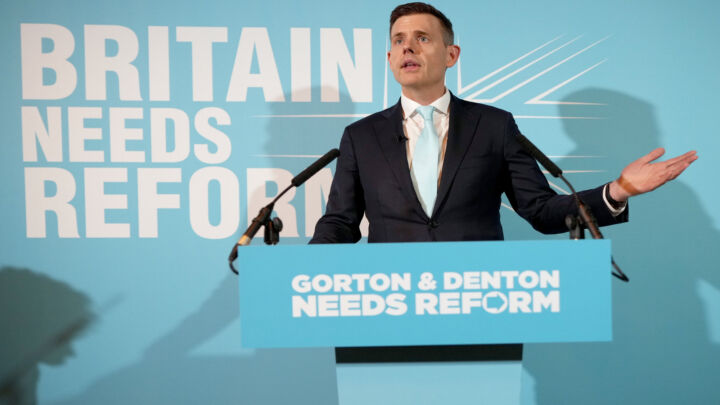Twitter has turned its back on free speech
The platform plans to exercise ideological control over its users.

Want unlimited, ad-free access? Become a spiked supporter.
Twitter has set a deadline. In addition to the existing Terms of Service, from 18 December users will be subject to a more stringent set of rules regarding ‘targeted harrassment’, the promotion of ‘violence’, and ‘expressing hate’. And last week Twitter announced that it would no longer ‘verify’ accounts whose viewpoints are not in keeping with the company’s values.
For those of you who have somehow resisted the lure of social media – in other words, those with real lives – the implications of this will not immediately be apparent. A ‘verified’ account on Twitter is marked with a white checkmark on a blue badge. It enables users to distinguish between authentic accounts run by public figures and parodies created by mischief-makers. How else, for example, could one tell the difference between the anti-democratic fulminations of philosopher AC Grayling and that of his similarly petulant rival AC Wailing?
For some reason, Twitter has now decided that verification implies endorsement, and is therefore withdrawing blue badges from those who are perceived to be extremists, such as the alt-right figurehead Richard Spencer. It is likely that such individuals will be banned completely following the 18 December deadline, especially since the new guidelines make it clear that Twitter will no longer tolerate those with questionable affiliations ‘both on and off the platform’.
All well and good, you might say. As a private company, Twitter is perfectly entitled to withhold its services, and if this is to the detriment of white supremacists, who will complain? This is an understandable point of view, although I’ve always found that the best way to discredit bad ideas is to allow them to be aired. That’s why Gary Younge’s decision to interview Richard Spencer for Channel 4 recently was a sound tactic. Given the opportunity, Spencer exposed himself for what he is: a historically illiterate demagogue, impervious to reason.
Twitter once saw itself as ‘the free-speech wing of the free-speech party’, but a recent New York Times interview with the company’s co-founder Evan Williams suggests that this commendable ideal no longer applies. ‘I thought once everybody could speak freely and exchange information and ideas, the world is automatically going to be a better place’, Williams said. ‘I was wrong about that.’
Williams even went so far as to apologise for Donald Trump’s successful use of the platform as a key feature of his election campaign. In doing so, Williams is reflecting a sinister idea which has been gaining considerable momentum of late: that the electorate consists of unthinking automatons who will vote not on principle, but in accordance with the contents of their Twitterfeeds. How else might one explain the absurd and widely circulated argument that the Russian government swung the Brexit vote through the use of online trolls?
I don’t need Twitter to remove Richard Spencer’s verification badge for me to know that his views are not to be taken seriously. His own words do the job perfectly well. By extending its role from facilitator to arbiter of acceptable ideas, Twitter can no longer lay claim to be a supporter of free speech. More worryingly, it sets a precedent by which relatively innocuous views might be censored under the pretence of protecting users from harmful content. One need only read the statements of the Stop Funding Hate campaign to realise that many activists see little or no distinction between conservatism and fascism.
Twitter is similarly prone to this kind of concept creep. It has a track record of suspending or deleting accounts on spurious grounds (often without specifying the details of the transgression) and censoring accounts in response to politically motivated complaints. It has even appointed a specific group – the terrifyingly named Trust and Safety Council – to act as the platform’s official thoughtpolice. Twitter, we are assured, must take a firm stance against ‘hate speech’, but this is a hopelessly nebulous term which is typically deployed to stifle the free exchange of ideas.
So when Twitter’s new rules include a prohibition against organisations that ‘use or promote violence against civilians to further their causes’, are we to take that to mean violence in its traditional sense, or is Twitter adhering to an expanded definition that includes insults, robust criticism and ‘triggering’ language? Those who defend university No Platforming policies, for instance, often claim that they are preventing potential ‘injury’ to students. Lindsay Shepherd, a graduate teacher at Wilfrid Laurier University, was recently reprimanded for showing a video featuring Jordan Peterson, a professor now famous for his refusal to adopt gender-neutral pronouns. According to the authorities, Shepherd had violated the university’s ‘Gendered and Sexual Violence Policy’. Such redefinitions are ideological sleight of hand, and should be resisted by anybody who values personal liberty.
Given that all of the major social-media companies – Twitter, Facebook and Google – are unashamedly partisan in their political outlook, the migration of users to alternative platforms now seems inevitable. This explains the growing popularity of Gab, a social-networking service which prides itself on its commitment to free speech. Gab’s refusal to censor its users has led some to brand it an ‘alt-right’ website, but this is disingenuous. One need not necessarily agree with an individual to support his or her right to speak.
With Twitter on track to narrow its Overton window to the dimensions of a porthole, it isn’t too far-fetched to imagine a future in which all social-media sites are tailored to a specific political worldview. Twitter’s CEO Jack Dorsey insists that censorship is for our own good, that freedom of expression ‘starts with safety’. But the public is not best served by the cultivation of an increasingly hermetic online ‘echo chamber’ culture. As Eduard Bernstein so succinctly put it, ‘men have heads’. The last thing we need is for Twitter to do our thinking for us.
Andrew Doyle is a stand-up comedian and spiked columnist. He is the co-author of Jonathan Pie: Off the Record. Follow Andrew on Twitter: @andrewdoyle_com
Picture by: Flickr, published under a creative commons license.
£1 a month for 3 months
You’ve hit your monthly free article limit.
Support spiked and get unlimited access.
Support spiked – £1 a month for 3 months
spiked is funded by readers like you. Only 0.1% of regular readers currently support us. If just 1% did, we could grow our team and step up the fight for free speech and democracy.
Become a spiked supporter and enjoy unlimited, ad-free access, bonus content and exclusive events – while helping to keep independent journalism alive.
———————————————————————————————————————————–
Exclusive January offer: join today for £1 a month for 3 months. Then £5 a month, cancel anytime.
———————————————————————————————————————————–
Monthly support makes the biggest difference. Thank you.










Comments
Want to join the conversation?
Only spiked supporters and patrons, who donate regularly to us, can comment on our articles.